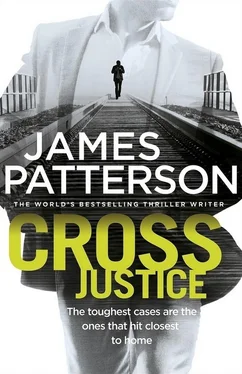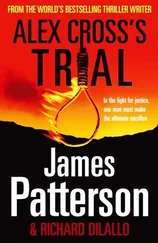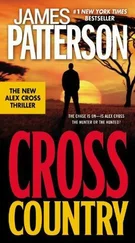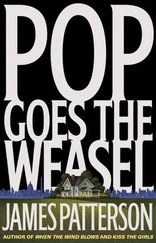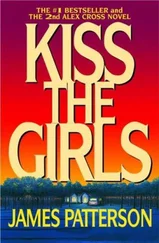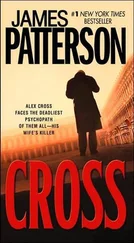There were six customers in the café, though only one was female and alone. She smiled at me, waved me over. A pretty, plump older Latina woman with a beaming smile, she got up out of her booth, pushing back her long ponytail of black hair flecked with gray, and adjusted an attractive purple batik dress. A small, simple wooden cross hung on a chain about her neck.
“Dr. Cross?” she said, smiling as she took my hand in both of hers and peered kindly up at me through wire-rimmed glasses. “I’m Reverend Alicia Maya. I understand you’re interested in Paul Brown?”
Over the course of an hour, an iced coffee, and a slice of pineapple pie, Reverend Maya told me what she knew about Paul Brown. She’d met him shortly after she had taken over the small Unitarian Universalist church in Pahokee as a first-time minister.
“I was twenty-five, right out of divinity school and sure I could change the world,” Reverend Maya said. “You wouldn’t believe it now, but back then, Pahokee was a thriving place. Everyone had jobs. People came here for jobs, including Paul Brown.”
Reverend Maya said Brown showed up at one of her evening services. He was weak and limped terribly.
“He stayed after the service,” she said. “He said he had no place to go and would be glad to clean the church if I let him sleep there. I was doubtful, but I could see he was a man in pain beyond the mere physical, and I said yes. He ended up living in the church for about eight months, working out in the picking fields in the day, cleaning the church at night.”
I held up my hands. “Before we go any further, can you answer a couple of quick questions?”
“I’ll try.”
“After Brown died, did you call someone named Clifford Tate in Starksville, North Carolina?”
The reverend cocked her head, looked off, and then said, “Yes. I believe the name and number were in a little book I found with Mr. Brown’s things.”
The loss of my father felt strangely final then, and it must have shown on my face because Reverend Maya said, “Sergeant Drummond said he was a relative of yours?”
“I believe he was my father,” I said.
She blinked, took a big breath, said, “Oh. I didn’t know that.”
Reverend Maya said Brown seemed to be a tortured man doing his best to atone for past sins, though he was evasive when it came to discussing their nature. He rarely spoke to her, but she often found him kneeling in prayer.
“I’d ask him what he was praying for,” the minister said. “All he would say was ‘Forgiveness.’”
“He never told you what had happened? What he did?”
The minister looked conflicted and I could tell it had something to do with confidentiality between a minister and a member of the flock, even a dead member of the flock. So I told her about Jason Cross.
Reverend Maya listened raptly as I described my parents’ descent into hell. I told her how my mother had died and about my disjointed memories of what I’d believed for three and a half decades was the night my father died.
“Mr. Brown confessed some of that to me, though there were never any names used. He said he’d killed his wife because she was suffering so.”
“I think that’s true. Did he ever mention us, the children? Or his mother?”
She nodded. “He did. He said his children were living with his mother somewhere up north, and that they were doing much better without him.”
Reverend Maya said that one evening several months after Brown had appeared at her church, she’d gone to check on him. Brown wasn’t there in the little room where he lived. Then she heard a shot and found him lying dead behind the church. He’d shot himself in the face with a shotgun.
“Can I see where it happened?”
She shook her head. “The church was a termite-ridden building that was torn down about five years after I left to take over a church in West Palm. But I’d be glad to show you his grave, if you’d like.”
“His grave. I’d like that very much.”
“We’ll take my car,” Reverend Maya said. “Funner.”
To my surprise, she led me to an older-model, gleaming, two-door white Mazda Miata convertible roadster.
“Do all Unitarian Universalist ministers drive sports cars?” I asked.
She laughed. “This one does. It’s my single vice in life.”
The reverend was good at her vice; she drove the Miata on the rural roads beyond the decaying streets of Pahokee as if she’d had race training somewhere. I never got the chance to ask her if she had because she peppered me with questions about my life and my family.
I could tell by the end of the fifteen-minute drive that Reverend Maya was as good at probing for the soul of things as she was at driving.
“You’ve led an amazing life by any definition,” she said as she downshifted and turned through the narrow gate of a small cemetery out in the countryside. “I think Paul, uh, your father would have been very proud of you.”
I smiled, choked up, and said, “Thanks.”
Biting insects whirled around us the second she stopped the car. But then she reached into her glove compartment and pulled out two ThermaCell bug repellents. She clipped one to her purse. I put mine on my belt and was glad to see the thing worked.
We walked forward two lanes in the cemetery and took a left toward the chain-link fence and the dense vegetation beyond it. At the end of the row there was a simple reddish granite slab about the size of two bricks set side by side.
PAUL BROWN
DEDICATED SERVANT OF HIS LORD, JESUS CHRIST
I felt my shoulders slump a bit reading those words and then the date of his death below. I thought back through the years, wondered where I’d been when my father killed himself.
I’d been, what, twelve? Thirteen? Did I ever once think of him back then?
I doubted it, and that admission let loose a trickle of raw emotion that had been building since I’d come upon the gravestone of my dad. My head swung slowly back and forth. My lungs fluttered for air.
He’d killed my mother and escaped prosecution only to be consumed by guilt and grief. The dam burst in me then, and I gave into it all, the tragedy, the loss of my father a second time. Burying my face in the crook of my arm, I broke down sobbing.
I felt Reverend Maya’s hand rubbing my back.
“Hard thing,” she said. “Hard, hard thing.”
It was almost a minute before I could control myself. I sniffed and looked away from her, said, “Sorry.”
“Nothing to be sorry about,” she said in a soothing tone.
“I feel bad about all of it.”
“I think it would be natural. What are you most upset about?”
I thought about that and anger pooled in me. “I didn’t have a dad. That’s what I’m angriest about. A boy deserves a father.”
“He does, and I’m sorry,” she said, deep empathy in her expression.
“There’s nothing for you to be sorry about,” I said in a hoarse voice. “My father made his decision. I’m sure he thought it was the right thing to do.”
“But it’s still a hard thing.”
I nodded. “It was like a door slammed shut on him the night he died. And then, just in the past few days, that door was open, just for a second, and I caught a glimpse of a secret passageway, but it ended at another locked door. One that will stay that way forever.”
Reverend Maya seemed to feel my pain as if it were her own, and she didn’t speak for a moment. Finally she said, “Do you need more time alone?”
I gazed down at the gravestone feeling wrung out, and then I said to my father’s ghost, “I love you, Dad. I forgive you, Dad.”
Reverend Maya patted me on the back again as I walked away from the gravestone. We were quiet on the drive back to Pahokee.
Читать дальше
